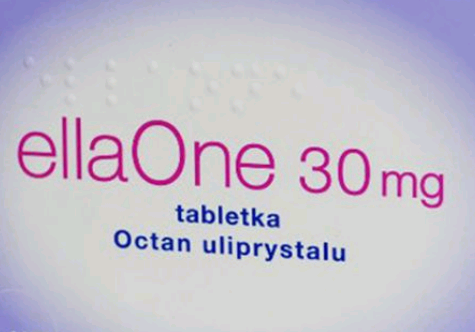31.01.2024 KSLP Open Letter to the Prime Minister of the Republic of Poland on the bill allowing the purchase of the morning-after pill without a prescription

January 31, 2024
Dear Mr. Donald Tusk, Prime Minister of the Republic of Poland
In the situation of a deep demographic crisis in our homeland, the disintegration of social bonds, for the sake of the today and tomorrow of our nation, for the righteous upbringing of the young generation, in the face of our responsibility for the health and fertility of Polish women, we address the Prime Minister with a firm demand to withdrawthe bill adopted on 24 January 2024 by the Council of Ministers, which is to allow children over 15 years of age to purchase without a prescription, That is, without the medical and parental control of the so-called “morning after” pill.
On 16 January 2015, the Catholic Association of Polish Physicians addressed the Prime Minister of the Republic of Poland in a similar case due to similar actions of the then Minister of Health[1].
The morning-after pill is to be used as a 30 mg dose of ulipristal acetate in ellaOne for use in an emergency, sporadic case to avoid pregnancy regardless of the phase of the menstrual cycle, within 120 hours (5 days) of intercourse. The Summary of Product Characteristics states that: “Ulipristal acetate is not used in prepubescent children in case of emergency contraception”.[2]It belongs to hormonal preparations that have a strong effect on the body, not indifferent to the health of a woman, especially a teenage girl, in whom the hormonal system has not yet completed the puberty process. Ulipristal acetate, a prescription-only formulation at six times lower dose, has been used to treat uterine fibroids and its safety at this dose has been studied in adult women. At the request of the President of the Office for Registration of Medicinal Products, Medical Devices and Biocidal Products, the preparation of ulipristal in the dose of 5 mg, by the decision of the Chief Pharmaceutical Inspector of 13.03.2020, was suspended from trading throughout the country. The decision follows an opinion by the Pharmacovigilance Risk Assessment Committee, which recommended suspending the authorisation of ulipristal acetate 5 mg across the EU due to the emergence of a new case of severe liver injury that necessitated a liver transplant. [3] It is important to note that ellaOne contains six times more of this ingredient.
The planned over-the-counter availability of ellaOne is misleading to the public; that it is a safe remedy that does not cause ailments or complications. This is not true. The preparation administered in such a high dose interferes with the proper functioning of the woman’s body. The Ministry of Health has released a list of dozens of adverse reactions to the use of EllaOne, reported to the European Database of Adverse Reaction Reports between 1 January 2015 and 30 April 2020.[4] Vaginal haemorrhage, abdominal pain, nausea, vomiting, headache, dizziness, fatigue have been frequently reported. [5] Chills, fever, irritability, insomnia, visual disturbances and menstrual cycle disorders were reported less frequently. It can be particularly dangerous to take several doses of the drug at the same time, or every few days, very likely if it is intentionally made available to young girls, actually children, without medical or parental supervision. The risk of serious complications is high in cases of migraine and thromboembolism. The morning-after pill may impair women’s ability to drive and use devices, due to the potential for dizziness, drowsiness, blurred vision and impaired concentration.
The subject of scientific research was also the effect of the widespread availability of over-the-counter morning-after pills on sexual behaviour. It has been proven that the facilitated access to these drugs was the cause of an increase in the frequency of sexual intercourse in the studied populations, potentially increasing the incidence of unplanned pregnancies. [6]‘[7] Although the morning-after pill can prevent unintended pregnancy in an individual woman, their use has no effect on abortion rates at the population level. Especially with the fear of the toxic effect of the drug on the conceived child. An increase in the frequency of intercourse with multiple casual partners was also reported under conditions of easy access to the morning-after pill. The use of the morning-after pill contributes to the responsibility of women for intercourse only, while prompting men to behave recklessly and irresponsibly. These can be aggressive behaviours, and the widespread availability of the pill can exacerbate violence against women. The presence of the above-described phenomena among young girls, who are naturally more difficult to realize the consequences of their actions, will result in a decrease in the age of sexual initiation, an increase in the frequency of disordered sexual relations and, as a result, sexually transmitted infections. The availability of pills can promote pedophilia. Among young people, the incidence of unplanned pregnancies and, unfortunately, abortions will increase. The incidence of conflicts, depression and suicide will increase, and in the future we can expect disorders of women’s reproductive health, a higher incidence of fertility disorders, as well as genital cancers and chronic abdominal pain.
ellaOne’s mechanism of action is to inhibit or delay ovulation by stopping the release of luteinizing hormone. In some studies, it has been shown that ulipristal can also interfere with the mechanism of implantation of the embryo in the endometrium, as it affects the thickness of the endometrium, changes its maturation process and structure. The embryo cannot implant in the altered endometrium and dies. [9] Ulipristal slows down peristaltic contractions of the fallopian tube musculature leading to desynchronization of the interrelationships of zygote, fallopian tube and endometrial activity. This can lead to disruption of the embryo implantation process and increase the incidence of ectopic pregnancies, which are life-threatening for women. The existence of an anti-implantation mechanism explains the effectiveness of the preparation administered during ovulation and justifies the effect of the preparation announced by the manufacturer up to five days after intercourse. EllaOne does not prevent ovulation if taken during the most fertile days of the cycle. [10]
The Board of the Catholic Association of Polish Physicians believes that:
1. Allowing children to buy ellaOne pills is unethical, deprives parents of responsibility for the health and life of their underage children, destroys family relationships, teaches an objective approach to the conceived child.
2. The pill, if used after conception, kills the child in the first days of its existence.
3. Providing children with the morning-after pill without a prescription is irresponsible, deliberate, deliberate detriment to their detriment. It will cause irreparable damage to the physical and mental health of girls, contribute to the moral depravity of children and adolescents, and to disorders of women’s reproductive health.
4. The bill violates fundamental constitutional principles, is not consistent with the obligation to protect the health of citizens, especially children and young people, the duty to protect minors from depravity, the right of parents to bring up their children in accordance with their own beliefs, and violates the constitutional guarantees of the protection of life.
As doctors, we strongly demand the cessation of actions that are inconsistent with the guiding ethical principle used in medicine “Primum non nocere” (Latin for “first do no harm”). We demand the immediate withdrawal of the bill adopted on 24.01.2024 by the Council of Ministers, which is to allow the purchase of the morning-after pill without a prescription from the age of fifteen.
Elżbieta Kortyczko, MD, PhD, specialist in paediatrics and neonatology, President of the Catholic Association of Polish Physicians (www.kslp.pl)
Prof. Bogdan Chazan, MD, PhD, specialist in gynaecology and obstetrics, Vice-President of the Catholic Association of Polish Physicians
Dr Grażyna Rybak, paediatric specialist, (www.kslpmazowsze.pl) President of the Mazovian Branch of the Catholic Association of Polish Physicians
Izabela Leszczyna, Minister of Health, Dr Łukasz Jankowski, President of the Supreme Medical Council, Media
[1] http://www.idziemy.pl/polityka/lekarze-do-premier-kopacz/
[2] chrome-extension://efaidnbmnnnibpcajpcglclefindmkaj/https://ec.europa.eu/health/documents/community-register/2016/20160502134849/anx_134849_pl.pdf
[3] Practical Medicine Drug Index – https://indeks.mp.pl/leki/desc.php?id=7936
[4] https://mgr.farm/aktualnosci/krwotok-z-pochwy-wsrod-najczestszych-dzialan-niepozadanych-pigulki-dzien-po/
[5]chrome-extension://efaidnbmnnnibpcajpcglclefindmkaj/https://ec.europa.eu/health/documents/community-register/2016/20160502134849/anx_134849_pl.pdf
[6] Atkins D. Association between increased availability of emergency contraceptive pills and the sexual and contraceptive behaviors of women. Journal of Public Health Policy. 2014, Aug 35 (3), 292 – 310 doi: 10,1057/jphp.2014.3
[7] Polis CB, Grimes DA, Schaffer K, Blanchard K, Glasier A, Harper CC,. Advance provision of emergency contraception for pregnancy prevention (full review). Cochrane Database Syst Rev. 2010, Issue 3.
[8] Michie L, Cameron ST. Emergency contraception and impact on abortion rates. Best Pract Res Clin Obstet Gynaecol. 2020 Feb;63:111-119. doi: 10.1016/j.bpobgyn.2019.06.008. Epub 2019 Jul 3rd PMID: 31362908.
[9] Miech RP. Immunopharmacology of ulipristal as an emergency contraceptive. Int J Womens Health. 2011;3:391-7. doi: 10.2147/IJWH. S25887. Epub 2011 Nov 22nd PMID: 22140327; PMCID: PMC3225469.
[10] Mozzanega B, Nardelli GB. UPA and LNG in emergency contraception: the information by EMA and the scientific evidences indicate a prevalent anti-implantation effect. Eur J Contracept Reprod Health Care. 2019 Feb; 24(1):4-10. doi: 10.1080/13625187.2018.1555662. Epub 2019 Jan 18. PMID: 30656992.










